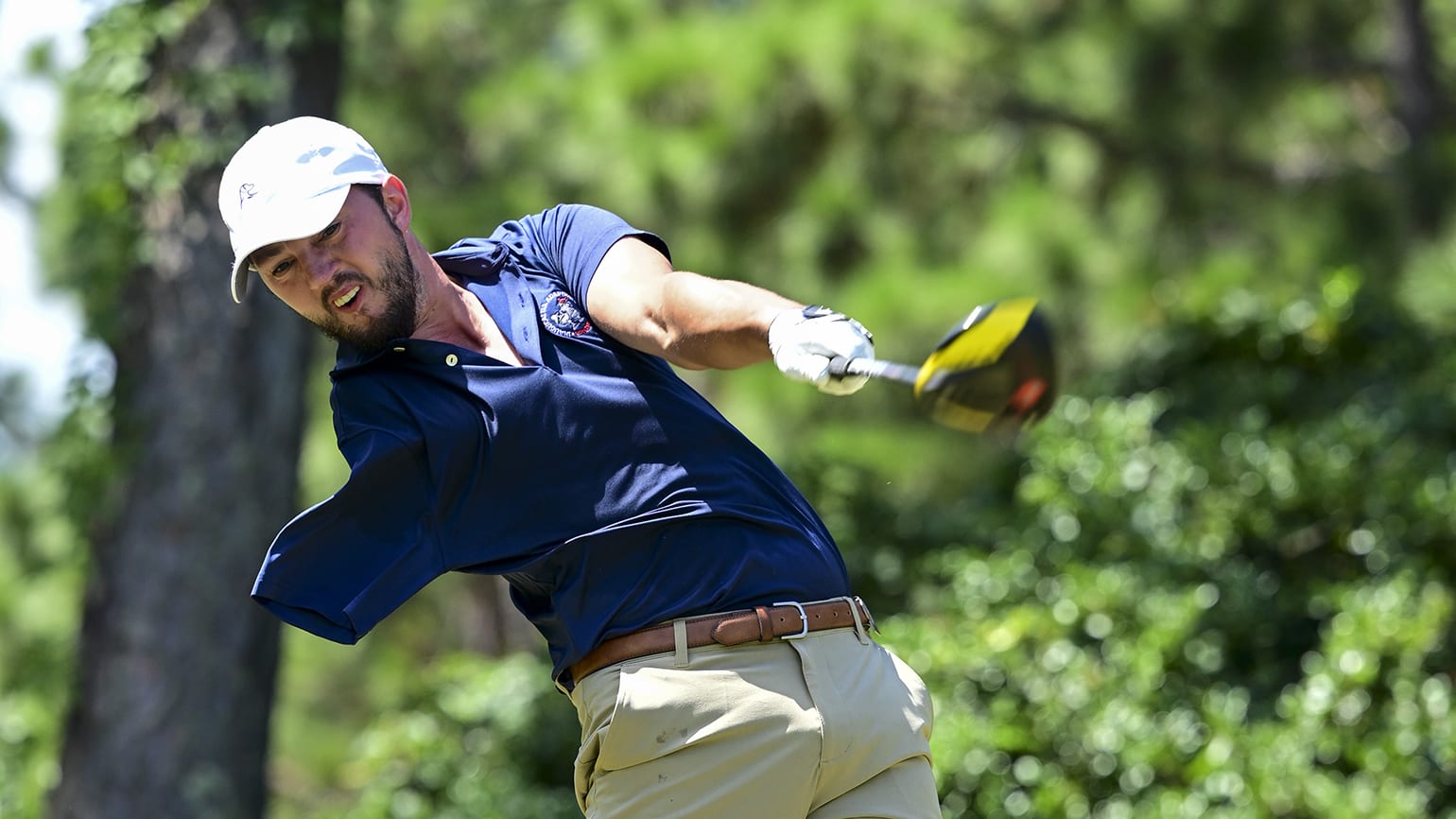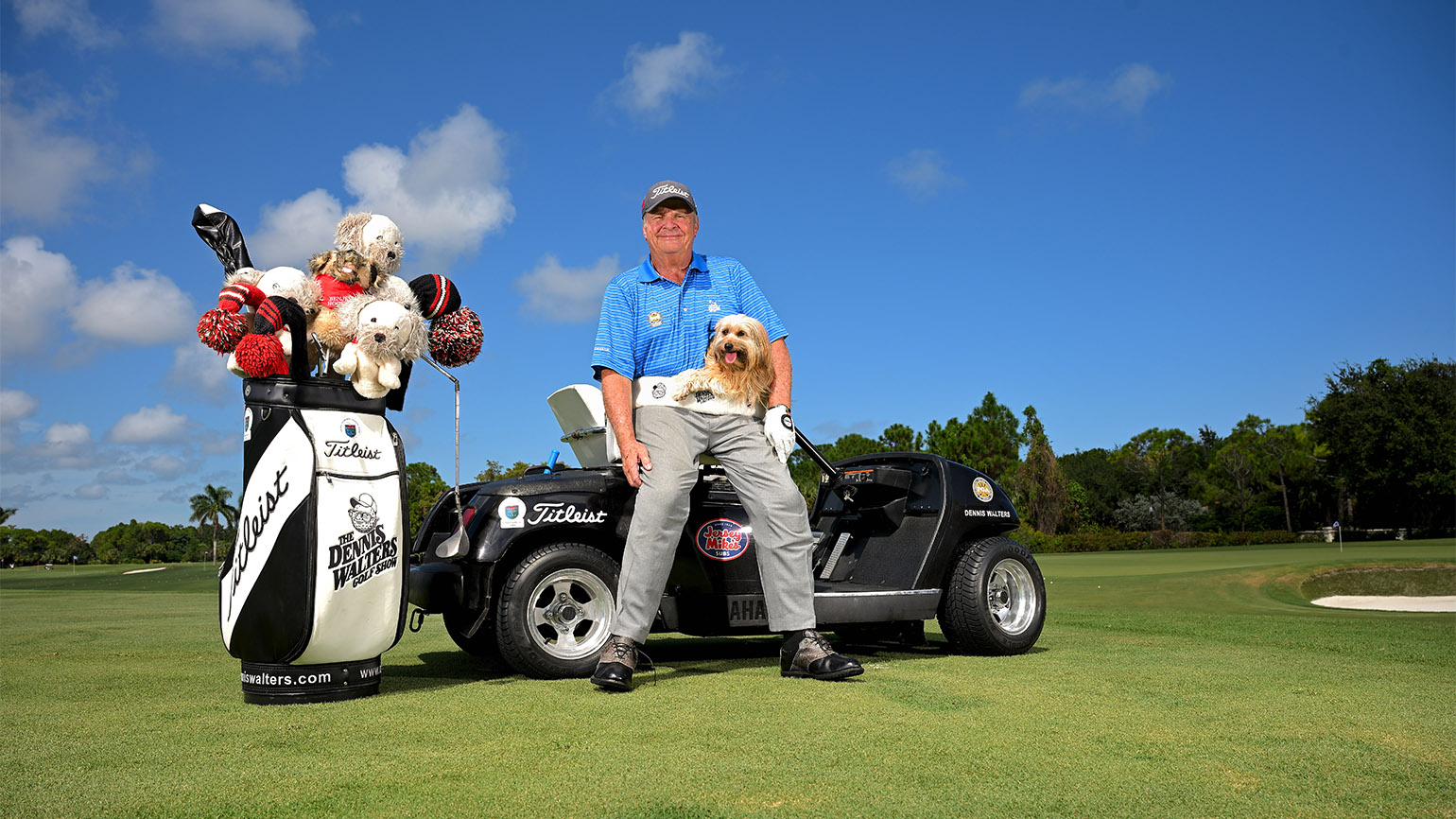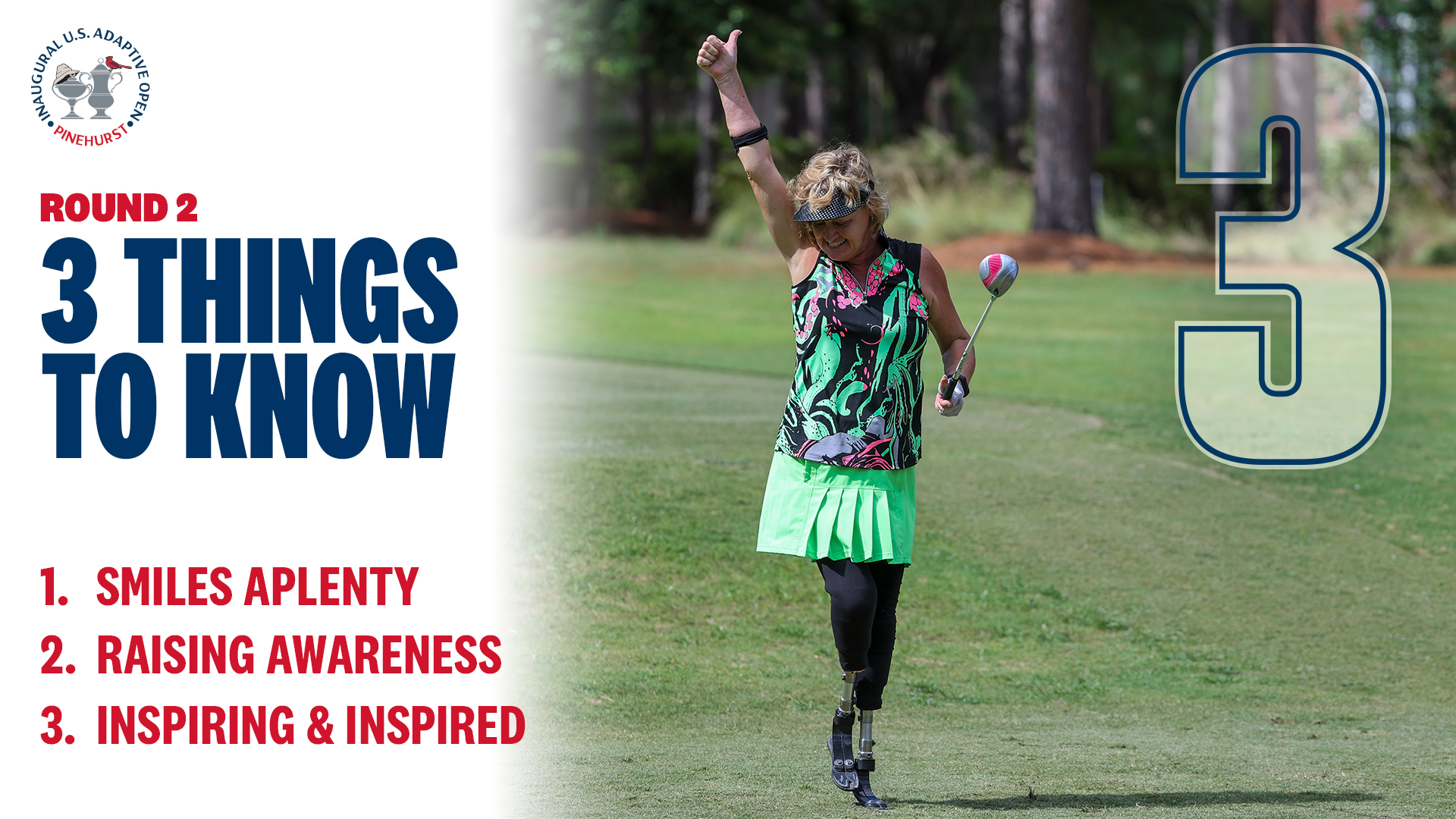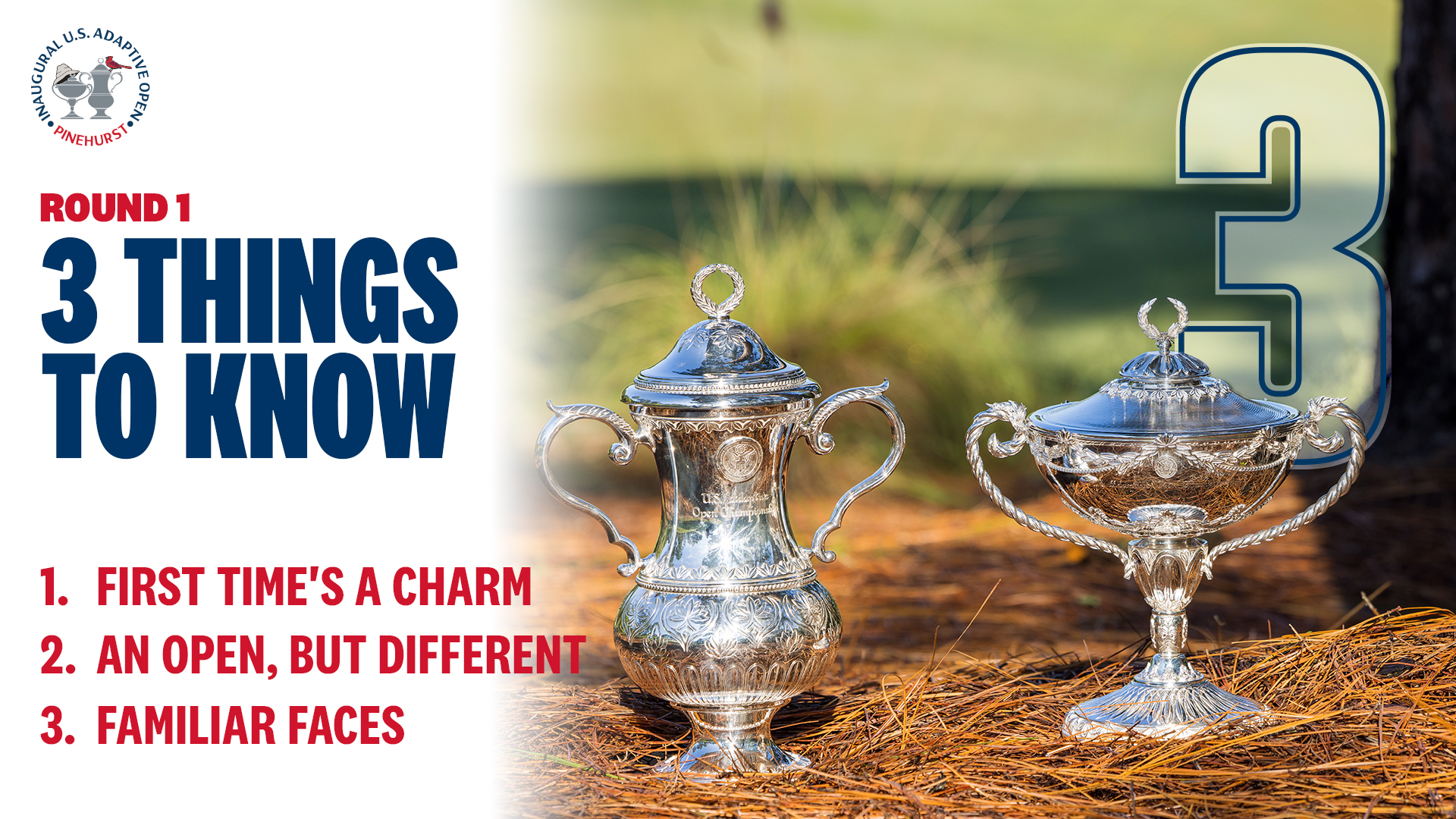Ukraine Native Fourie Takes Unlikely Path to Adaptive Open
By Ron Driscoll, USGA

Alex Fourie, a 29-year-old who spent his first seven years in Ukraine orphanages, was born without a right arm. (Robert Beck/USGA)
Each of the 96 players in this inaugural U.S. Adaptive Open has traveled an incredible journey, with many obstacles overcome to reach this championship on Course No. 6 at the Pinehurst Resort. Among the most amazing is that of Alex Fourie, whose path to becoming an accomplished golfer began in an orphanage in Ukraine.
Fourie was born with one arm and a cleft lip and palate, conditions that doctors said were likely brought on by the lingering effects of Chernobyl. The site of the worst nuclear disaster in history in 1986 is some 70 miles from the town where Fourie was born.
“The cloud went north and the radiation went south, carried by the river,” said Fourie, 29, who was given up by his birth parents in Zvenyhorodka, a small city in central Ukraine.
“It wasn’t a whole lot of fun,” said Fourie of his first seven years spent in a government-sponsored orphanage. “We were fighting for food every day, about 130 children.”
Tougher yet, a man named Vic Jackopson who was touched by the tiny 2-year-old Fourie began working to have him adopted, only to lose track of him as the toddler was moved to a different orphanage and lost in the system for nearly five years. Jackopson finally located Fourie, and then the wheels finally began turning in his favor.
His future adoptive parents, Anton and Elizabeth Fourie, had heard about Alex from Jackopson when he visited their church in Birmingham, Ala., and they applied to adopt him just before he turned 7. When the youngster was brought to Oxford, England, to have surgery on his cleft palate, he met the couple who would become his parents. Although he didn’t realize at the time that they were working to be approved as his new guardians, within six months, Fourie had landed in his new life in Alabama.
“I went from having nothing that I owned, that belonged to me, to my own room with my own toys,” said Fourie. “It was overwhelming. It was like I hit the lottery.”
Within a week, his father had introduced him to fishing and to golf, but Fourie didn’t take to the game right away. He played lots of sports growing up, including soccer and kicking for the football team in high school, before gravitating back to golf.
“I definitely was frustrated by the game, but I learned to love it,” said Fourie. “I was around it a lot – my cousins played, my uncle and my dad. I was bitten by the bug in my freshman year of college.”
Fourie sheepishly admitted skipping out on an 8 a.m. art class for an entire semester at community college to visit the driving range. “That’s when I got really good,” said Fourie, adding with a wink: “Don’t tell my parents; they paid a lot of money for my classes.”
Fourie is “really good” as in a 0.4 Handicap Index®, one of the top one-armed players in the country who competes often in events run by the North American One-Armed Golfer Association. He has also passed his PGA of America Player Ability Test, the only one in a group of 14 players to get through the 36-hole challenge that day. He also passed his written exam to earn Level 1 professional status, and hopes to someday work as an instructor for children with disabilities.
In the meantime, he works for a roofing company in his adopted hometown of Knoxville, Tenn., spending half of his time on installations and half on sales. He plans to use that practiced sales pitch to help introduce youngsters to the game he loves.
“It’s awesome to achieve things and get the compliments, but my goal to grow the game and give back,” said Fourie, who says he plays about once a week. “I want to teach kids how to play and to fall in love with golf. Awareness is the first step, asking them if they’ve tried golf. My goal is to get them to hit one good shot. You get a little nibble and you draw them in, just like fishing.”
Fourie also works on behalf of a project near to his heart: helping Ukrainian orphans escape the horrors of the war with Russia. He raises awareness and funds for their plight through an organization called Hope Now Ministries, and thus far the group has helped some 300 youngsters find safe haven in other countries, Poland and Romania chief among them.
Fourie’s goal for the U.S. Adaptive Open is to make the top 10 in his category.
“It’s a huge honor to be part of the first championship,” said Fourie. “I want to thank the USGA for this championship, which is a celebration of adaptive golf.”
It’s also a recognition and a celebration of the journeys that brought such a diverse and deserving field to Pinehurst.
Ron Driscoll is the senior manager of content for the USGA. Email him at rdriscoll@usga.org.
RELATED

Jul 12, 2022
USGA Partners


